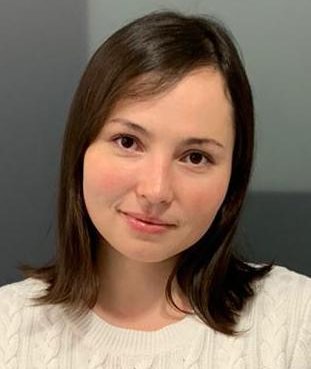Rezeda Lyykorpi is a doctoral researcher in the International Research Training Group “Baltic Peripeties” at the University of Greifswald and a student in the Doctoral Programme in Social and Cultural Encounters at the University of Eastern Finland. Her research interests include memory and migration studies. In the qualitative study on the Königsberg’s memory in Kaliningrad her ex-Kaliningrader background helps her to apply both insider and outsider positions while dealing with the multivocality of perspectives on the respective phenomenon.
Rezeda Lyykorpi

University of Greifswald
IRTG Baltic Peripeties
Anklamer Str. 20
17489 Greifswald
Germany
Room: 0.10
+49 3834 420 3311 (department secretariat)
rezeda.lyykorpi[at]uni-greifswald.de
A Place with a Powerful Past: Representations of Königsberg’s Memory in Kaliningrad Museums
My PhD project is focused on the memory of German Königsberg in today’s Kaliningrad – the Russian exclave on the Baltic Sea. The main aim of this research is to explore how the memory of Königsberg is represented and interpreted by Kaliningraders, who are mostly ethnic Russians.
MORE ABOUT THE PROJECT- “Immanuel Kant Museum in Kaliningrad and Variations in Representing Königsberg Memory in Kaliningrad Public Museums,” 29th Biennial AABS Conference The Baltic Way: Unity and Giving Aid, organised by the Association for the Advancement of Baltic Studies (AABS), Yale University and University of New Haven, CT, June 13-16, 2024.
- Project presentation in the seminar Königsberg-Kaliningrad im 20. Jahrhundert. Stadtgeschichte(n) im Zeitalter der Extreme, organised by Thomas Rettig, M.A., University of Greifswald, July 13, 2023.
- “Königsberg Is Not Forgotten: Exhibiting German Past in Kaliningrad Museums,” panel Re/creating Belonging in and through Museums, Memory Studies Association (MSA) 7th annual conference Communities and Change, Newcastle University, Newcastle-upon-Tyne, July 3-7, 2023.
- Project presentation, PhD colloquium organised by Prof. Dr Stefan Berger, Institute for Social Movements, Ruhr University Bochum, June 28, 2023.
- “The Explosive Power of Hidden Peripeties – the Application of the Concept of Peripety and Memory of Königsberg in Kaliningrad,” international workshop The Same Event? Morphologies, Reflections, Disseminations, organised by the IRTG Baltic Peripeties. Narratives of Reformations, Revolutions and Catastrophes, Institute for Cultural Research, University of Tartu, December 15-17, 2022.
- Project presentation at the Eastern European Memory Studies Summer School Translating Memories in Literature, Film, Museums, and Monuments, organised by the ERC-project Translating Memories: The Eastern European Past in the Global Arena, Roosta/Estonia, July 11-15, 2022.
- “Creeping Germanisation and Debates over Königsberg’s Memory in Kaliningrad,” Interdisciplinary Centre for Baltic Sea Region Research (IFZO) annual conference Baltic Sea in Exchange. Transformations between Conflict and Cooperation, University of Greifswald, July 7-9, 2022.
- “The Myth of Königsberg in Kaliningrad. Reconfiguring History in Museums and Urban Space,” 28th Biennial AABS Conference Baltic Studies at a Crossroads, organized by the Association for the Advancement of Baltic Studies (AABS), Seattle, WA, May 27-29, 2022.
- Panel participation: “Borders, Memories and Europe: Transnational Memory Politics from the Historical and Contemporary Perspective II,” Bomocult seminar Engaging Borders as a Site of Encounters: New Directions in Interdisciplinary Research, Joensuu, October 13, 2017.
University studies and degrees
- Since April 2021
- Doctoral Researcher at the International Research Training Group “Baltic Peripeties. Narratives of Reformations, Revolutions and Catastrophes” at the University of Greifswald.
- 09/2017 – 06/2025 (estimation)
- Doctoral Programme in Social and Cultural Encounters. Major: Social and Public Policy, University of Eastern Finland.
- 09/2014 – 09/2016
- Master’s Degree programme in the Social Sciences, programme: Border Crossings: Global and Local Societies in Transition. Major: Borders, Society and Cultural Diversity (Sociology), University of Eastern Finland.
- 09/2005 – 05/2010
- Specialist Degree in Psychology, Immanuel Kant Baltic Federal University, Faculty of Psychology and Social work (Kaliningrad, Russia).
Professional background
- 10/2016 – 11/2016
- Research Assistant in the project “Environmental History fo the Finnish-Russian Green Belt,” Department of Geographical and Historical Studies, University of Eastern Finland.
- 03/2015 – 06/2015
- Internship at the Karelian Institute, University of Eastern Finland; Research Assistant in the project “Career Mobility of Russian Healthcare Professionals in Finland: Trends, Patterns and Effects”.